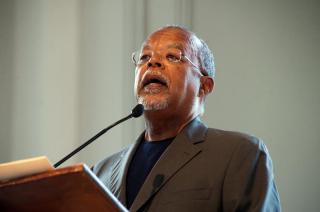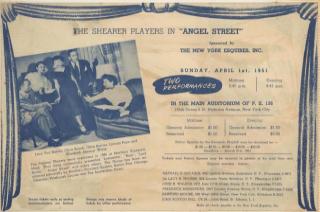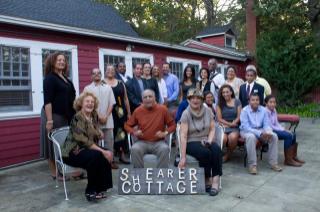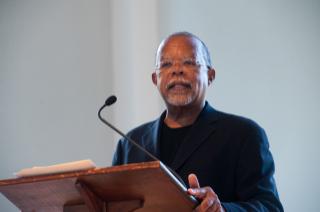African American History
2014
On Wednesday, elder members and former presidents of the Cottagers gathered around tables and took turns sharing memories.
2013
Politics are poisoned by bitter partisanship, economic disparities between whites and minorities are widening and trust between these groups seems to be eroding, complicating efforts to bridge America’s divisions. These were among the many observations by panelists at the annual Hutchins Forum Thursday evening in Edgartown.
The African American Heritage Trail of Martha’s Vineyard began as part of a promise to a little boy, and in 1998 the Shearer Cottage was dedicated as the first site on the Trail. The ambition was to reach a total of eight sites. That there were many stories was obvious, but the depth and range of the experiences that make up the tapestry of the African American experience on Martha’s Vineyard was amazing. From fugitive preachers to nationally known politicians, all the struggles and triumphs of people of color were part of the story of this Island.
Editor’s Note: Olive Tomlinson spoke with Linsey Lee, oral history curator for the Martha’s Vineyard Museum, about her recollections of Liz White’s Shearer Summer Theatre, one of the first summer theatre groups on the Island after World War II. An actress who felt stymied by the stereotyped African American roles available to her on Broadway, in the summers Liz returned to Oak Bluffs where her family owned and operated Shearer Cottage, a popular inn for vacationing African Americans.
2012
The day before the centennial celebration of Shearer Cottage in Oak Bluffs, Gretchen Tucker Underwood noticed that the landscaping around the 100-year-old red inn on Rose avenue was not quite ready for the impending party.
There were plenty of problems on the table and few easy solutions at hand as an influential panel convened Thursday evening to discuss the issue that has gone unnoticed in this issue-laden presidential election year: unemployment and high poverty rates in the African American community.
When Martin Luther King Jr. was assassinated in 1968, few “would have anticipated that in the year 2012, we would have the largest black middle class in American history,” said forum host Dr. Henry Louis (Skip) Gates Jr.







